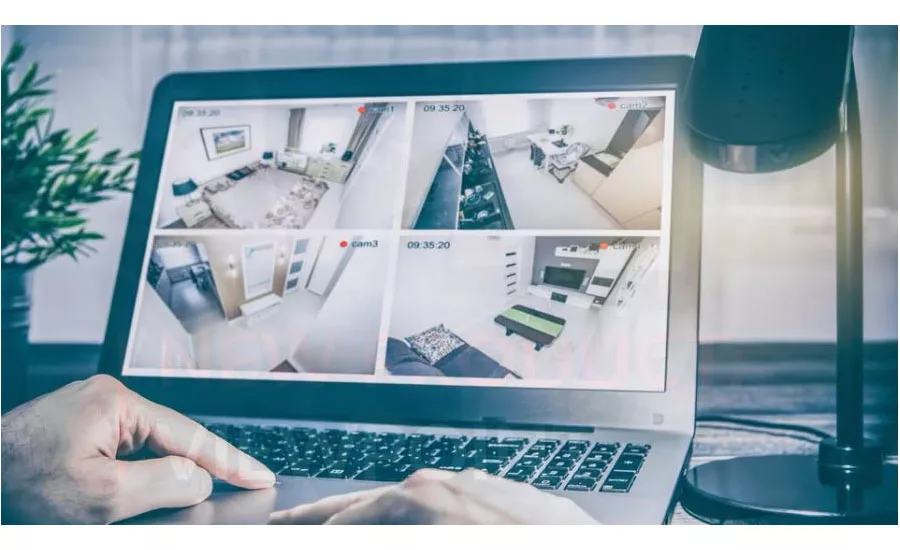Why security is more important now than ever

The Wall Street Journal recently stated that commercial burglaries have almost doubled in New York City since March 12 when a state of emergency was declared. Reason being, thieves are targeting nonessential businesses that have shuttered locations as a result of government directives or are robbing essential businesses that would likely have more cash on hand. Multiple retail organizations are also reporting an increase in shoplifting attempts and point of sale shrink since the beginning of the coronavirus outbreak. In times like these, as a rise in theft, burglaries and other disturbances are expected, security is more important than ever.
Essential business that are remaining open also need to address newer challenges such as ensuring customers and staff are following appropriate social distancing practices. Retailers, such as jewelry chains, that are now offering curbside pickup or delivery services have to consider expanding security solutions to properly safeguard employees and customers in outdoor pickup areas. Meanwhile, now more than ever, restaurants need to make certain that employees are following proper food safety protocols.
To address these concerns, many operations, IT and security professionals are working closely with managed service providers as an extension of their own, in-house teams. They’re looking to employ the best and most effective technology solutions that will help them secure and scale their operations.
One of the most powerful layers of security for a business is an interactive monitoring solution. With live video and two-way audio capabilities, these systems allow trained security staff to be able to see, hear and communicate with employees 24/7. This solution guarantees personnel safety and ensures the premises remain secure. Virtual guard services allow remote operators to connect to live audio and video feeds and scan the location to look for any potential threat day or night — just as an on-premises security guard might do. This keeps eyes on shuttered locations, as well as essential businesses with increased activity, warning potential bad actors that there’s always a security presence on hand. If there’s a threat, a trained, live professional will immediately respond by assessing the situation and intervening with live audio. Where necessary, police will be dispatched.
Automated and customized voice down message services can also be used to address some of the most pressing matters. They can be scheduled throughout the day through an organization’s existing speaker system to remind customers and employees about proper social distancing and/or food safety practices.
Video verified alarms, which integrate a basic alarm system with video, is another effective solution that can make a huge difference for businesses. During this current crisis, law enforcement is focusing more on critical, health-related issues and can’t as easily respond to commercial burglar alarm signals going into a 911 center. Even in normal times, typical police response to a commercial burglar alarm is about 26 minutes. However, a video-verified alarm system that clearly demonstrates an imminent situation will prompt law enforcement to move more quickly to the location. It can save valuable police time and also save businesses hundreds or thousands in false alarm fees.
Another security concern all essential businesses face is cash and inventory loss or shrink. Solutions like point of sale exception reporting integrated with video surveillance systems limit these theft opportunities. They enable loss prevention professionals to quickly identify anomalies and detect and prevent shrink. Top offenders among thousands of employees doing millions of transactions can easily be identified.
Remote auditing is another powerful way to ensure that operations are running as they should be and that employees are following proper procedures. Here, audit specialists leverage video surveillance solutions to look at things like cash handling, employee productivity and, especially in times like these, safety compliance and cleanliness. A regular remote audit can help reduce shrink and improve employee productivity by pinpointing key problem areas and can deliver actionable insights with visual reporting.
As we continue to make our way through the current crisis, businesses are preparing to reopen and allow employees to return to the workplace. There will likely be a number of new policies in place that managed services can also help support and enforce. Physical distancing practices, for instance, will continue in the workplace for some time. Remote audits can ensure that people are not overcrowding and getting too close together in a retail space or that tables at restaurants aren’t placed too close together. Food safety requirements will also continue to be stringent.
These solutions not only show measurable results, a demonstrable return on investment, and quick integration, but also offer peace of mind in knowing that the business is always protected.
Looking for a reprint of this article?
From high-res PDFs to custom plaques, order your copy today!






